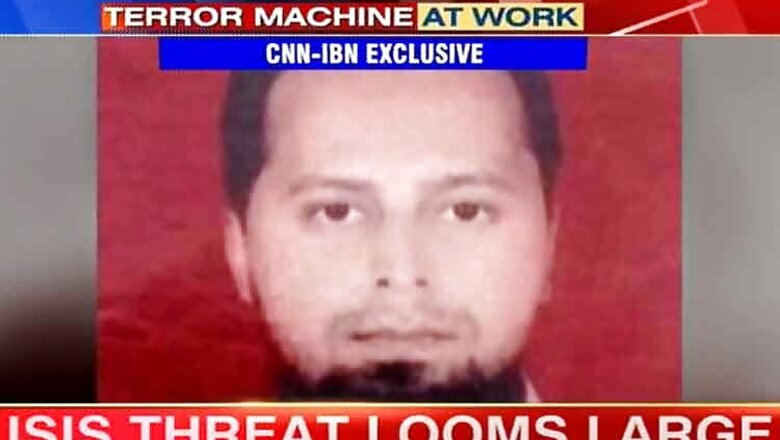
views
It is not just Iraq and Syria, but the Islamic State threat is now hitting closer to home. India is constantly on tenterhooks, battling a very real and credible threat from the most active terror outfit at present in the world. In January 2016, the National Investigation Agency carried out a nationwide crackdown and arrested 13 suspected ISIS operatives.
Their initial interrogation report exclusively accessed by CNN-IBN spilled the beans on the world's most dreaded terrorist group's plans for India. The interrogation details of all accused revealed a well-structured ISIS Indian hierarchy and each individual arrested had a designation in the Indian offshoot of the terror organisation called Junood-al-Khalifa-e-Hind.
The modus operandi is simple - identify potential candidates who scout out propaganda material online and lock them in with ideas of Jihad. That is how they trapped the 13 people arrested by the NIA.
In the course of the investigation so far, the NIA has discovered that the outfit has reportedly managed to consolidate a well-oiled structure for its Indian operatives.
Revealed: How ISIS recruits and trains Indian youngsters for terror strikes
Muddabbir Sheikh alias Abu Musab is proclaimed as ISIS' Amir-e-Hind and incharge of overall operations, scouting and planning. Rizwan alias Khalid is his deputy chief or as they like to call him Nayab Amir.
Nazbul Huda, who was arrested in Bengaluru, is the Amir-e-Askri or their military commander. Nafees, who was arrested in Hyderabad, is the Amir-e-Maliyati or the head of their financial operations.
Asif Ali and Md. Afzal, who both from Bengaluru, and Mansoor from Tumkur in Karnataka are Davatis - those whose specific task is to look out for ISIS sympathisers in India.
All of them have been radicalised online by an Indian national based in Syria - Yusuf al-Hindi alias Mohammad Shafi Armar. Chatting services like Skype, Trillian and Signal has been used by suspects to communicate.
Some of the operatives are very well educated with professional degrees in engineering and computers.
4 suspected ISIS operatives highly qualified, worked in top companies
The terror organisation's network is so strong that it even managed to tap hawala agents to source money for alleged anti-national activities. In 2015, Muddabbir Sheikh managed to source Rs 6.50 lakh through hawala agents sent via Syria by an Indian national Yusuf al-Hindi. The NIA claims that this money was meant to finance blasts across the country during 2016.
The NIA has recovered 45 mobile phones, 26 sim cards, 3 pendrives and 10 laptops. These operatives have also managed to lay their hands on explosive material as well which too was recovered.
In a confession to NIA sleuths, one of the operatives admits to having made a successful pipe bomb under remote control instructions from Syria. Again on instructions from abroad, another operative claims to have picked up a bomb in a tin from a contact in Delhi.
The evidence so far is damning. A conclusion that is fast being drawn is that the ISIS has hit home. The threat is real, agencies claim to have busted the Indian foot soldiers of ISIS, but the worry is that, there are many more in the making.




















Comments
0 comment